|
Printables |
PowerPoints |
Online exercises |
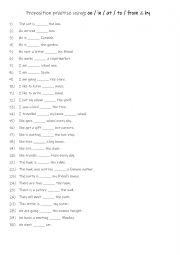
|
A1-A2 Preposition practise using: on, in, at, to , from & by
Students familiarise themselves with the 6 prepositions and their use. Then they read the sentences to see which preposition is required to complete the gap-fill. Each preposition is used 5 times. Answers on page 2.
Level: elementary
Age: 8-100
Type:
Downloads: 107
|
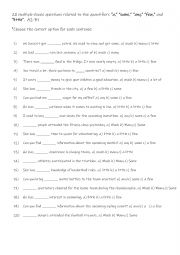
|
Quantifiers practise using a, some, any, few, and little.
20 multiple-choice questions related to the quantifiers a,some,any, few,and little. A2-B1.Answers on page 2
Level: elementary
Age: 10-100
Type: worksheet
Downloads: 106
|
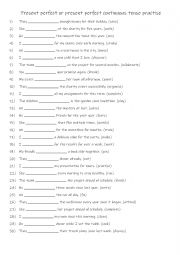
|
B1 Present perfect or present perfect continuous tense practise
Learning the present perfect and present perfect continuous tenses is essential for expressing actions and experiences in English effectively. The present perfect tense connects past actions to the present, allowing students to describe experiences, changes, or completed actions with relevance to now. The present perfect continuous tense, on the ot...
Level: intermediate
Age: 9-100
Type:
Downloads: 108
|
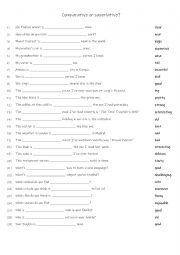
|
Comparative or superlative?
Students read the sentences and decide if a comparative or superlative of the given adjective is needed. Answers are on page 2
Level: elementary
Age: 10-100
Type:
Downloads: 143
|
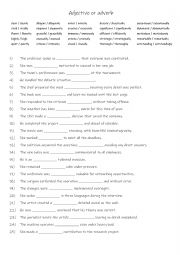
|
B2-C1 25 Adverb or adjective complex sentences
Mastery of adverbs and adjectives is essential for success in professional and academic settings. Clear, precise, and effective communication is critical in these environments.In advanced communication, students often need to make arguments, persuade others, or present complex ideas. Adverbs and adjectives help them articulate their points more con...
Level: advanced
Age: 14-100
Type:
Downloads: 103
|
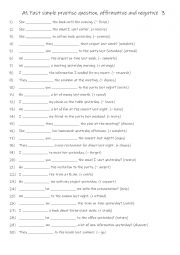
|
A1 Past simple practise question, affirmative and negative 3
Learning the past simple tense with questions, affirmative, and negative sentences is essential for students as it enables effective communication about past events. It provides a foundation for understanding grammar and constructing basic sentences, which is crucial for daily conversations. Mastering these forms ensures students can ask questions,...
Level: elementary
Age: 8-100
Type:
Downloads: 130
|
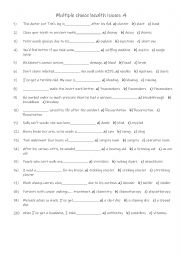
|
A2+ Multiple choice health issues 4
Students read the sentences and choose the correct word out of the given choices. Answers on page 2.
Level: elementary
Age: 11-100
Type:
Downloads: 114
|
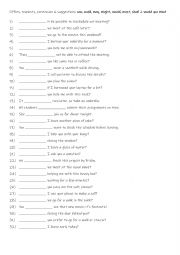
|
B1 Offers, requests, permission & suggestions - can, could, may, might, would, must, shall & would you mind
First, students familiarise themselves with the 8 modal verbs and their usage. Then they read the sentences to see which modal verb is needed to complete the sentence. Each modal is used 4 times. Answers on page 2.
Level: intermediate
Age: 8-100
Type:
Downloads: 105
|
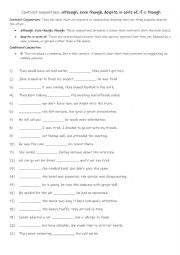
|
B1-B2 Contrast conjunctions -although, even though, despite, in spite of, if & thoug
Students read the grammar notes about the different types of conjunctions used in this worksheet. Then they read the sentences to work out which type of conjunctions are needed to complete the gap-fills. There are 36 sentences as each linker is used 6 times. Answers on page 3.
Level: intermediate
Age: 10-100
Type:
Downloads: 114
|
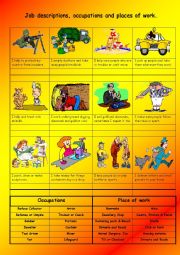
|
Job descriptions, occupations and paces of work
Students to read the descriptions then write the occupation and normal place of work using the given vocabulary at the bottom of the page. Part 4 of 4
Level: elementary
Age: 6-12
Type: worksheet
Downloads: 266
|
|
|
|
|












